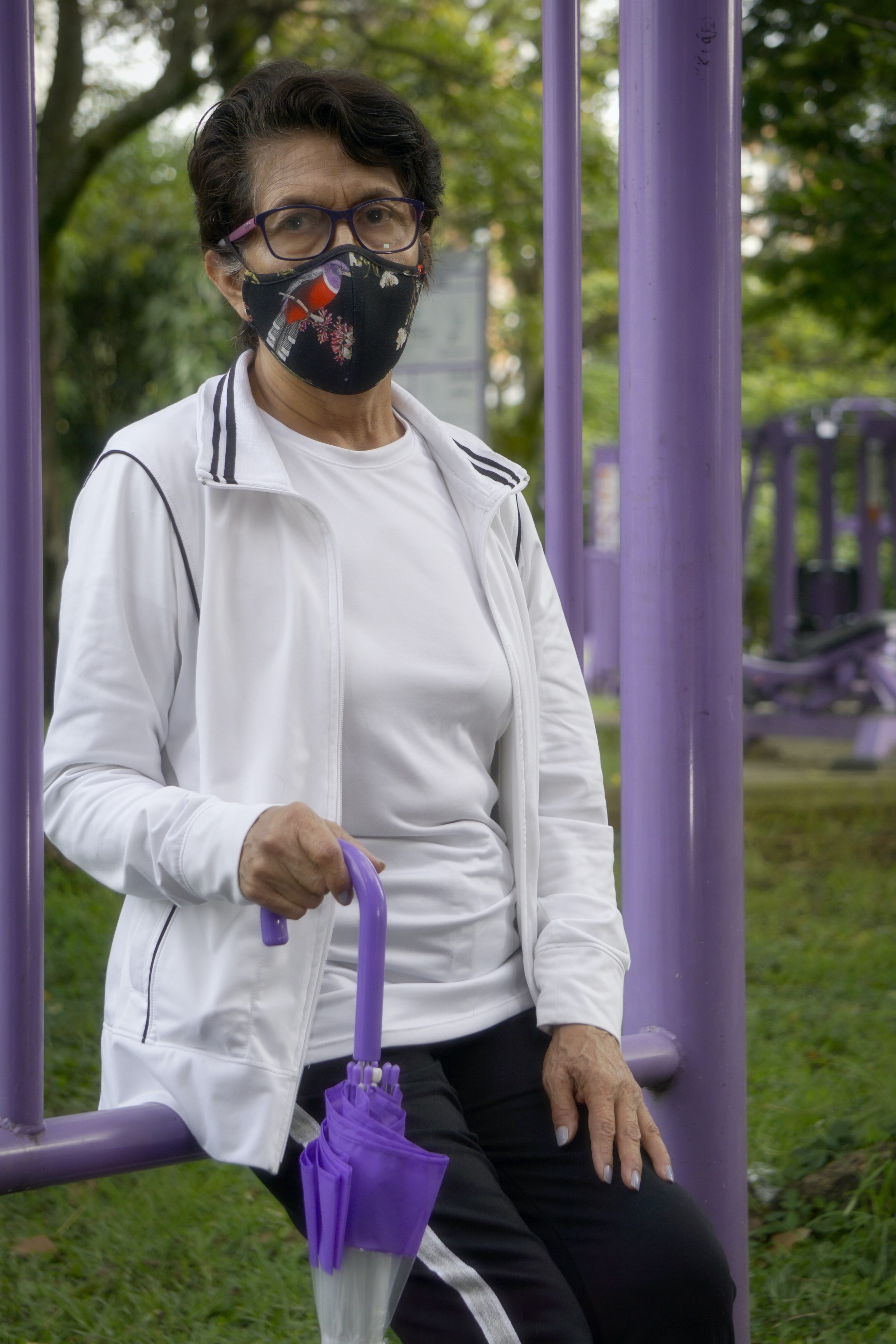Thinking About Retirement

“I juggled working as a bookkeeper, homemaker, and caregiver for many years. However, following my husband’s Parkinson’s diagnosis and deteriorating health, I recognized that it was time to enter the next stage of life. In July 2020, at the age of 82, I retired from my job at the accounting firm. Retirement has been a difficult change for me, and it has had its additional challenges because of the pandemic.”
– Bluma (story gathered by Megan De Cruz, an occupational therapy student)
Retirement is a Transition
Retirement is often defined as transitioning out of paid work, and receiving financial resources from savings and other sources. In Canada, this generally means a government-funded pension tied to our involvement in work. Our work history and other conditions may offer access to other sources of government support, private pensions, and retirement savings. Access to these supports often shapes when we retire and what our retired life will look like – but this can also be influenced by other factors such as a change in our health or a need to provide caregiving to someone else.
Retiring at 65 is no longer a given, and there’s a greater need to consider the various aspects of this life transition. Questions about when to retire and whether to do it gradually or quickly are influenced by our finances, options within our working life, and our physical and emotional well-being. For many of us, retirement has become an open question, while for some, retirement is not affordable, and may not be a choice.
These days, many workers are willing and able to work well past 65 despite qualifying for Old Age Security and the Guaranteed Income Supplement. Statistics Canada reports more than 40% of Canadians aged 65 to 69 are currently employed—and most say they simply want to work. The flip side is that some of us have no choice but to continue working even if we want to retire: such as those of us who were out of work for a period in mid-life, who had to take time off for health/family reasons, or whose working life consisted of low paying jobs.
We live in a time where Canadians have less access to private pension plans and must work in an economy that makes it hard to save for retirement. It seems that only a lucky few have the means to keep up the same lifestyle after retiring. However, most Canadians do leave work as they age. Some may choose when, but the question of retirement may be forced upon others by workplace closures; health and personal issues; or perhaps a loved one who requires care. Still, others may be quietly pushed out because of ageist attitudes (an ‘out with the old, in with the new’ attitude), or through new methods of work that devalue our skills and experience.
The retirement process is a major life transition, and there is no cookie-cutter experience for Canadian retirees.
Preparing for Retirement
“Since retirement, I’m having the time of my life.”
– Barbara
The potential joys of retirement are no secret; freedom from work obligations and greater control over our time. For some retirees, we can be spontaneous and indulge in everything we didn’t have time for, whether it’s volunteering, joining a social club, or indulging in meaningful pastimes. Experts have linked this freedom to increased satisfaction and well-being, but like anything, too much of a good thing can become problematic. For those who don’t need to worry about savings, the honeymoon phase of retirement is short-lived, and new plans must be made to spend our time.
There is no singular retirement experience, and for some, the golden years may not be so golden.
 “I worked as a construction foreman for many years. Even though I enjoyed my work, I was eager to retire. The first year of retirement was exhilarating. I visited my sister and nephews in Scotland, travelled with my wife to Europe and Asia, and renovated my garden. But after that first year, I had done everything that I had wanted to do. I felt restless because I had nothing to look forward to in the day. Retirement stripped me of purpose.”
“I worked as a construction foreman for many years. Even though I enjoyed my work, I was eager to retire. The first year of retirement was exhilarating. I visited my sister and nephews in Scotland, travelled with my wife to Europe and Asia, and renovated my garden. But after that first year, I had done everything that I had wanted to do. I felt restless because I had nothing to look forward to in the day. Retirement stripped me of purpose.”
– Peter
Without planning, retirement can leave us empty and directionless. Research has found that the average retiree spends approximately 43.5 hours watching television each week — essentially replacing their former work week. A paradox of retirement that researchers have discovered is that retirees long for freedom, but at the same time they are accustomed to a level of routine and productivity in their lives.
Our jobs often provide us with a daily platform for socialisation; a pool of familiar people we can share ongoing narratives with about our weekend, work, and ourselves. Once we retire, our main source of daily interaction may suddenly disappear. Social isolation not only can lead to boredom, but can impact our physical and mental health in significant ways.
For those forced to retire and who may not have adequate resources and support in place, this can be a particularly challenging transition. The lack of time and resources to plan and emotionally adjust can have negative effects on our health, especially if we’re forced to leave behind a job that we found meaningful. Research shows that forced retirement can be related to lowered life satisfaction, and depressive symptoms; including feeling hopeless, worthless, and irritable, along with changes to sleep patterns and appetite. Anxiety is also common among forced retirees. Without the time, support, and tools to adjust to our new life, there is a higher risk of unhealthy choices including alcohol, drugs, gambling, or other addictions. The effects of forced retirement are rarely individual, and can ripple into our relationships, causing interpersonal issues.
Covid-19 has led to an unstable job market with an uncertain recovery timeline, which has forced many of us who were nearing the end of our careers into involuntary retirement. Experts believe this pandemic will upend the timing of retirement plans for many older workers. According to a recently published report, the pandemic has given rise to a surge in early retirement. While this decision will be voluntary for some of us, for others retirement may be forced upon them by job elimination or unavoidable health risks.

“If there was no COVID, I would be retired. But what would I do with all my time? I can’t go anywhere or visit anyone, friends or family?”
– Jean, a 67 year old operations manager
Jean’s remark highlights our human need to maintain purpose, structure, and meaningful engagement in social activities in retirement. For many adults, a great deal of their lives has been spent at work, and work may be central to their identity. As such, for those who have worked, when we are asked about what we do, we often reply with our occupation: “I am a postal worker/an engineer/a truck driver.” But when we stop working, who do we become? What is our purpose? Since our earlier years have been so busy, many do not spend time thinking about what pursuits, projects or activities will continue to provide us with a sense of purpose beyond work.
New retirees must be mindful of the risks of swinging from one imbalance of too much work to a lack of identity and social support. Without the daily grind, we may feel empty or unfulfilled, but with the right support, access to resources, and planning, retirement can and should be a time of continuing fulfilment and growth.
Retirement is a Process
“We tend to think of retirement as black and white – either we’re working or we’re not. However, there’s a grey area that many of us inhabit. I include myself in this group. I retired from my role as a healthcare professional and university professor a couple years ago, but maintain my own small freelance business. I can set my own schedule and decide how many hours I work. In other words, I feel freer. There’s also a misconception that retirement tends to lead to isolation and lack of meaning – that doesn’t have to be the case. By making a conscious effort to volunteer, foster new connections and maintain important old ones, I’m able to feel productive while also enjoying a meaningful social life.”
– Pat McKee (The story, written by Ilan Mester, was inspired by an interview by Claudia Yousif.)
Retirement is not a single event – many of us are thinking about retirement and taking steps long before our 65th birthday. Some of us continue part-time or do contract work shortly after leaving our jobs. Along this journey, we have many decisions to make, plans to put in place, and challenges to overcome.
Here are some questions you may be asking yourself while preparing for retirement:
- When should I retire?
- (When) can I afford to retire?
- How do I prepare for retirement?
- Where will I live after retirement?
- How will I maintain my social life and friendships during retirement?
- What will I do with all my time?
- Based on monthly spending, how many years will my savings and financial support fund?
- Who will care for me as I grow older?
- Which identities will I pursue outside of my job?
- How will I stay healthy in retirement?
- Who can help me navigate the retirement process?
Most retirement planners focus on the financial side, but occupational therapists know that the ways we use our time and engage in life are critical to remaining healthy, happy, and meaningfully engaged throughout retirement. Occupational therapists work in all the facets of life, from living conditions to social activities.
Occupational Therapists Support our Retirement Process
Occupational therapists are problem-solvers who start with a focus on what makes us tick: who we are, what we value, who we want to become, and the challenges we face.
Occupational therapists will want to know what activities engage us, structure our days, provide a sense of meaning, and express our identities. The answers to these questions inform and guide how we might best plan, navigate transitions, and deal with diverse obstacles from limited financial resources or social supports, to health changes and ageism.
Not everyone who is planning to retire or has retired will require professional intervention to adjust. An occupational therapist can help you plan and adapt so you can keep doing what you love!



